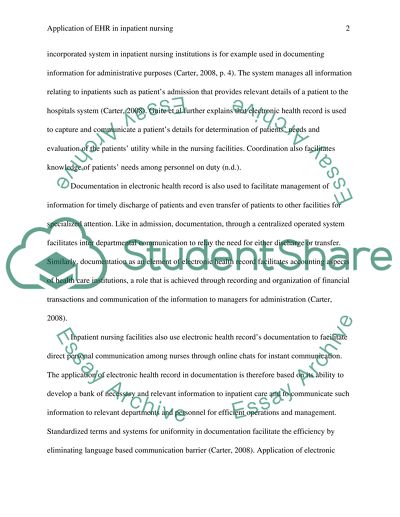Cite this document
(“Applications of EHR on Inpatient Nursing Essay Example | Topics and Well Written Essays - 1750 words”, n.d.)
Applications of EHR on Inpatient Nursing Essay Example | Topics and Well Written Essays - 1750 words. Retrieved from https://studentshare.org/nursing/1453615-applications-of-ehr-on-inpatient-nursing
Applications of EHR on Inpatient Nursing Essay Example | Topics and Well Written Essays - 1750 words. Retrieved from https://studentshare.org/nursing/1453615-applications-of-ehr-on-inpatient-nursing
(Applications of EHR on Inpatient Nursing Essay Example | Topics and Well Written Essays - 1750 Words)
Applications of EHR on Inpatient Nursing Essay Example | Topics and Well Written Essays - 1750 Words. https://studentshare.org/nursing/1453615-applications-of-ehr-on-inpatient-nursing.
Applications of EHR on Inpatient Nursing Essay Example | Topics and Well Written Essays - 1750 Words. https://studentshare.org/nursing/1453615-applications-of-ehr-on-inpatient-nursing.
“Applications of EHR on Inpatient Nursing Essay Example | Topics and Well Written Essays - 1750 Words”, n.d. https://studentshare.org/nursing/1453615-applications-of-ehr-on-inpatient-nursing.


